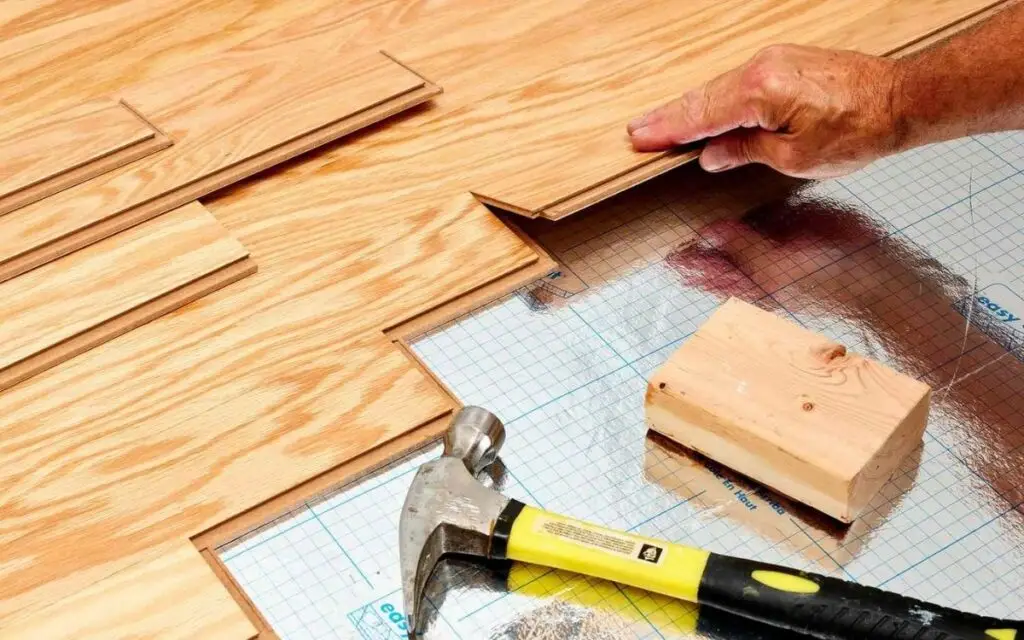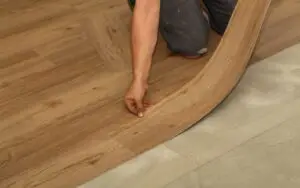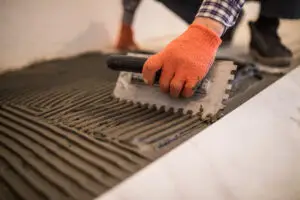Understanding Solid Hardwood Flooring
What is Solid Hardwood?
Construction and Composition
Solid hardwood flooring is made from planks milled from a single piece of wood. This means that each plank is solid wood from top to bottom. The wood is typically kiln-dried to ensure stability and durability, and is then cut, sanded, and finished. Solid hardwood can come in a wide range of thicknesses and widths.
Variety of Wood Species
Solid hardwood flooring is available in a variety of wood species, each with unique characteristics. Popular options include oak, maple, cherry, and walnut, each offering different colors, grains, and hardness levels. The type of wood species will affect both the aesthetic and the durability of the flooring, and is often an important decision to make.
Advantages of Solid Hardwood
Timeless Beauty and Aesthetics
Solid hardwood is prized for its timeless beauty and natural aesthetic. Its natural grain patterns, warm tones, and elegant appearance add a touch of sophistication and luxury to any home, making it a great option for those who want an elegant and classic feel. This option is often chosen for a formal look, or an elevated feel.
Long Lifespan and Durability
Solid hardwood flooring is known for its exceptional durability and long lifespan. With proper care and maintenance, it can last for generations, making it a worthwhile investment in your home. It is also able to be refinished multiple times, extending the life of the floor and keeping it looking new.
Increased Home Value
Solid hardwood flooring is often seen as a luxury feature that can increase the value of your home. Many prospective buyers appreciate the timeless appeal and longevity of hardwood flooring, making it a great selling feature. The installation and overall cost will often be recouped in the value of your home.
Disadvantages of Solid Hardwood
Susceptibility to Moisture
Solid hardwood is susceptible to damage from moisture, making it less suitable for high-moisture areas, such as bathrooms, kitchens, and basements. High moisture can lead to warping, cupping, and other forms of damage. It’s very important to consider the space and location when deciding to install solid hardwood.
Higher Cost
Solid hardwood flooring is typically more expensive than other flooring options, both in terms of material and installation costs. This makes it a less budget-friendly option for some homeowners, and also means that it’s a larger investment that needs to be taken seriously.
Installation Challenges
Solid hardwood installation can be challenging and requires specialized skills, tools, and knowledge. It’s typically recommended to hire a professional for installation to ensure that the job is done right. It can be a difficult DIY project that often ends up causing more issues, and requiring repairs.
Understanding Engineered Wood Flooring
What is Engineered Wood?
Construction and Composition
Engineered wood flooring is made of multiple layers of wood. The top layer, or veneer, is made of real hardwood and the core is made of plywood or fiberboard. The multi-layered construction gives engineered wood more stability, and resistance to moisture and temperature changes, compared to solid hardwood. The design allows it to be more stable, and also more affordable.
Variety of Veneers and Finishes
Engineered wood flooring is available in many species, colors, and finishes. The top veneer can be made of various hardwood species, offering a similar look and feel to solid hardwood at a lower price point. This gives you many options, to match your desired aesthetic, while also providing an affordable solution.
Advantages of Engineered Wood
Stability and Moisture Resistance
Engineered wood is more stable than solid hardwood, making it less susceptible to expansion and contraction due to temperature and moisture changes. This makes it suitable for a wider range of environments, including basements and kitchens. It is also less likely to warp or cup like solid hardwood.
Cost-Effective Alternative
Engineered wood is a more budget-friendly option than solid hardwood, making it an attractive alternative for homeowners looking to achieve the look of hardwood without the high cost. The lower price point makes it more accessible, while still providing a durable and beautiful floor.
Easier Installation Process
Engineered wood is easier to install than solid hardwood, and it can often be installed as a floating floor. This is done by clicking together the planks, eliminating the need to nail them to the subfloor. The easy installation makes it a faster project, but it is still highly recommended to hire a professional.
Disadvantages of Engineered Wood
Shorter Lifespan Than Solid Hardwood
Engineered wood flooring typically has a shorter lifespan than solid hardwood. Although the material itself may be very strong, the top layer of wood is not as thick, meaning it cannot withstand as many refinishings as solid hardwood. This makes it less durable in the long run, compared to solid hardwood.
Limited Refinishing Options
Engineered wood flooring typically has fewer refinishing options than solid hardwood. The thin veneer layer means it can only be sanded and refinished a limited number of times. Depending on the product, it may not be able to be refinished at all. Therefore, it is always best to keep this in mind when choosing an engineered wood option.
Potential for Lower Resale Value
While engineered wood can add value to your home, it may not always increase resale value as much as solid hardwood. However, high-quality engineered wood can still be an attractive feature for prospective buyers and add some value to your property.
Key Differences: Hardwood vs Engineered Wood
Durability and Longevity
Wear and Tear Resistance
Solid hardwood is more resistant to wear and tear over the long term due to its solid construction. It can be refinished multiple times, extending its lifespan. However, it does not hold up well to moisture, whereas engineered wood is designed to handle moisture better, so both options have a set of pros and cons.
Lifespan and Replacement
While solid hardwood can last for generations with proper care, engineered wood will typically need to be replaced sooner due to its limited refinishing options. This will often affect the overall cost, and needs to be considered when making your choice.
Installation and Maintenance
Difficulty of Installation
Solid hardwood installation is more difficult and time-consuming than engineered wood. It requires specialized skills and tools, making professional installation necessary. Engineered wood, on the other hand, can often be installed as a DIY project, although it is still highly recommended to hire a professional, regardless of the type of material.
Cleaning and Upkeep
Both solid hardwood and engineered wood require regular cleaning and maintenance. While both are simple to clean, it is important to use the correct cleaning methods for both, and follow the manufacturer’s recommended care.
Cost and Value
Material and Installation Costs
Solid hardwood is more expensive than engineered wood in terms of both material and installation costs. This is an important factor to consider when choosing your flooring, and you may need to take some time to properly assess the overall budget for your project.
Return on Investment
While solid hardwood has a higher upfront cost, it can increase the value of your home more than engineered wood. Engineered wood, however, is more affordable while still providing a durable and beautiful flooring. Both can offer a good return on your investment, but solid hardwood may yield a higher return.
Making the Right Choice For Your Needs
Factors to Consider When Choosing
Room and Environment
Consider the room and environment where you’ll be installing the flooring. Solid hardwood is best for low-moisture areas, while engineered wood can handle areas prone to moisture and temperature changes. Assess each area in your home individually to decide which flooring will be best for each space.
Budget and Lifestyle
Consider your budget and lifestyle. Solid hardwood is a larger investment but offers durability and timeless beauty. Engineered wood is a more affordable alternative, suitable for most homes, but will need to be replaced sooner than solid hardwood.
Personal Preferences
Consider your personal style and preferences. Solid hardwood offers natural beauty and a timeless feel, while engineered wood comes in many styles, colors, and finishes. Choose the flooring that will best match your style and your home.
Scenarios Where Each Option Excels
Best Use for Solid Hardwood
Solid hardwood is best suited for living rooms, dining rooms, and bedrooms where the aesthetic and a timeless look are prioritized, and where moisture is less of a concern. Because of the high investment, solid hardwood is best used in areas that will provide the most value, and the best aesthetic quality.
Best Use for Engineered Wood
Engineered wood is best suited for kitchens, basements, and other areas where moisture is a concern, while also being a more budget-friendly alternative to solid hardwood. It’s also great in areas that have a lot of foot traffic, and will help provide the same aesthetic without the higher cost of solid hardwood.
The Importance of Professional Installation
Risks of DIY Installation
Common Mistakes and Damage
DIY installation of either solid hardwood or engineered wood can lead to common mistakes, like improper subfloor prep, gaps, and uneven plank alignment, all of which will end up costing more to fix in the long run. By hiring a professional, you’re helping avoid potential damage and problems with your floor.
Potential for Cost Overruns
DIY projects often run over budget due to wasted materials, incorrect measurements, and the need to purchase specialized tools. A professional installer will have the tools and knowledge to accurately install your flooring, while also preventing costly issues.
Benefits of Professional Installation
Expertise and Warranty
Professional installers have the expertise, tools, and experience to install hardwood or engineered wood flooring correctly. They will also often offer a warranty that covers their work, giving you peace of mind. Their expertise can help ensure that you won’t have to deal with any issues later on.
Efficiency and Precision
Professionals can complete the installation efficiently and accurately. They will make sure the flooring is installed right the first time, and you can enjoy your new floors with confidence, and without having to deal with any potential issues from a DIY install.
Case Study: DIY vs Professional Installation
Comparing Project Success and Failures
A homeowner attempted a DIY hardwood floor installation, which resulted in uneven planks, large gaps, and a damaged subfloor, which ended up requiring costly professional repairs. In contrast, a homeowner who hired a professional for engineered wood installation had a smooth, level, and beautiful floor with no issues. This helps highlight the importance of hiring a professional, regardless of the material you choose.
FAQs & Answers
While solid hardwood is often considered highly durable, engineered wood can withstand moisture and temperature changes better, making it suitable for a wider range of environments. A professional installer can help you understand which option would be best for your specific needs, while also providing the assurance of a long-lasting floor, no matter your choice.
Yes, engineered wood flooring can be refinished, but it typically has fewer refinishing options compared to solid hardwood. This is due to the thinner veneer layer. Professional installation can help maximize the lifespan and refinishing potential of your flooring. Hiring a professional for refinishing will also ensure that the flooring is refinished properly to ensure longevity.
Engineered wood flooring is typically easier and less expensive to install than solid hardwood, because it can often be installed as a floating floor, while hardwood often requires nailing into the subfloor. However, professional installation is recommended for both flooring types to ensure the job is done right. A professional installer will be able to give a detailed quote for both, and allow you to compare the labor costs.
While solid hardwood is often considered more luxurious and may increase home resale value, high-quality engineered wood can also add value and appeal to potential buyers. The key is having either material installed professionally to ensure it looks beautiful and will last for years. A professional installation is an investment into your property, and ensures that you will get the best value possible.
It's always recommended to hire a professional for hardwood or engineered wood flooring installation, because they have the expertise, tools, and knowledge to handle any installation challenges. This will also ensure that your flooring is installed properly, and is covered by a professional warranty.





